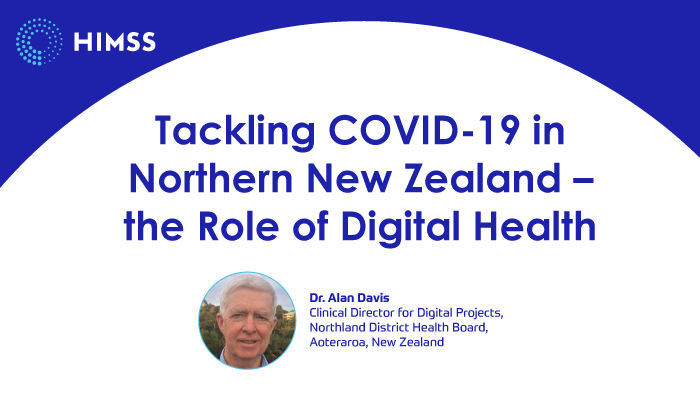Despite its relatively small size, the government in New Zealand’s managed to effectively mitigate the spread of the virus within the country. In the recent HIMSS webinar “Tackling COVID-19 in Northern New Zealand – the role of digital health”, hosted by Dr Charles Alessi (Chief Clinical Officer HIMSS) with invited guest speaker Dr Alan Davis (Clinical Director for Northland District Health Board), Dr Davis revealed the steps implemented by the government to combat the spread of the epidemic within the country.
WHY IT MATTERS
While the spread of the virus within New Zealand remained relatively controlled, the government recognized several areas of improvement especially pertaining to the improvement of the lockdown situation within the country. Adoption of digital health in the various healthcare ecosystems had not been well established. In the public health sector, contact tracing is predominantly carried out manually with the transfer of information performed manually as well.
A low testing capacity is also another issue which the nation faces. Within healthcare institutions, there exists a shortage of hospital beds, with only 250 intensive care unit (ICU) beds available. Hospitals were also not prepared for separating the workflows within the organisation. Numerous healthcare professionals were also insufficiently trained to manage an epidemic of such a scale and were not granted sufficient personal protective equipment (PPE). Many of them also had limited experience with telehealth services as most healthcare contact was done in person.
However, the New Zealand government also put in place a swift information services response to the lockdown within the country. The workflow of the majority of businesses was also shifted online. Testing centres were set up within the community and an electronic notification was sent to those who went for a swab test to inform them of their results. Numerous facilities within the country were also repurposed to help support the healthcare ecosystem in order to prevent them from being overwhelmed. Prime Minister Jacinda Ardern together with the Director general of health, Ashley Bloomfield would brief the nation daily to provide updates on the COVID-19 situation within the country.






























